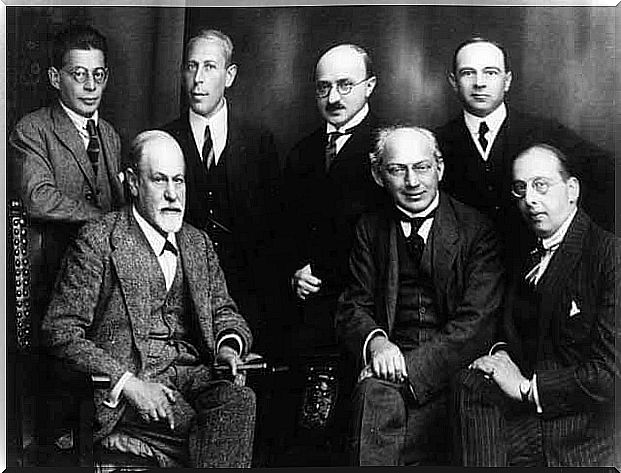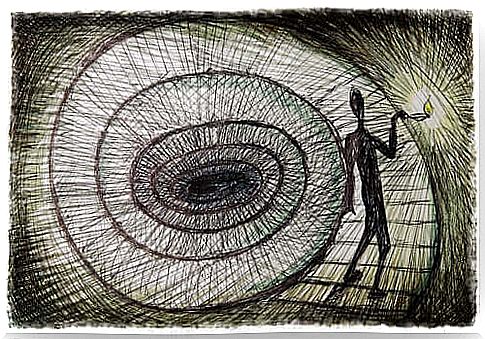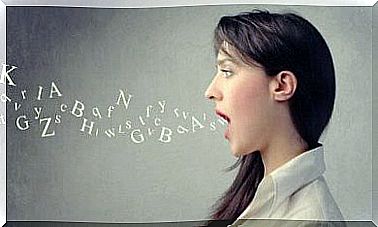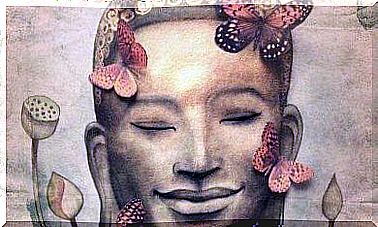Max Eitingon And The Pillars Of Psychoanalytic Training

Max Eitingon was one of the most important physicians and psychoanalysts of the first generation because he made fundamental contributions to psychoanalytic training. His particular work marked the fate of this current of thought.
The training of a psychoanalyst is different from that of other mental health professionals . Let’s think that, in the origins of psychoanalysis, there was not yet a training exclusively dedicated to this study; therefore, training in medicine was necessary. In other words, the first psychoanalysts were, in essence, doctors.
This trend continues to be maintained in some places today, although it is not the only way to engage in psychoanalysis. Thanks to the work of Max Eitingon and other collaborators, this fact took an irreversible turn, causing a break with medicine.
Currently, one of the great differences between a psychologist and a psychoanalyst is the fact that the former acquired this title thanks to university studies. On the other hand, the psychoanalyst is trained during his own psychoanalysis , which must include a didactic component. Max Eitingon proved to be a key figure in bringing this change to fruition.
With this article, we intend to shed light on these questions and discover, at the same time, the man we are talking about: Max Eitingon.
The early years of Max Eitingon
Max Eitingon was born in the city of Moilev, Belarus, on June 26, 1881. He came from a family of Orthodox Jews of very good social standing. The father, Chaim Eitingon, was a prosperous merchant who specialized first in the sugar business and later in the marketing of skin products. Max had two sisters and two brothers, being the second born.
The family settled in Germany when Max was just 12 years old. He was a shy boy with a very severe stutter As a result of his stutter, he dropped out of high school, but later attended classes in art history and philosophy at the prestigious universities of Halle, Heidelberg and Marburg.
In 1902, he began studying medicine in Leipzig, after having completed his secondary studies. He was later hired in Zurich as an assistant to Eugene Bleuler, and while there he met Carl Gustav Jung. Of this entire group, he was the first to seek a direct approach to Sigmund Freud. To do this, he traveled to Vienna in 1907. In a letter, Freud described him as “the first messenger who approached a lonely man ”.

Max Eitingon and psychoanalysis
Max Eitingon began attending the Psychological Society meetings on Wednesdays. There he made an interesting intervention that caught the attention of Sigmund Freud. As a result of this intervention, a meeting was reached in which he told him about a case that concerned him. Spontaneously, the father of psychoanalysis and Eitingon carried out one of the first didactic psychoanalyses in history. They did this in stages, between 1908 and 1909, during afternoon walks.
The personal encounter with Sigmund Freud marked a before and an after in Max Eitingon’s life. From this moment on, an indestructible friendship was forged, which survived intact until his death. Max became for Freud something like “his man of confidence”. For this reason, on more than one occasion, he entrusted him with crisis management in different psychoanalytic societies.
However, not everything was a flower for Eitingon, as discrepancies arose among psychoanalysts at the time. For Carl Jung, Eitingon was an unimportant person. Otto Rank, in turn, opposed his entry into the Secret Committee, which occurred in 1919. Max was never a great psychoanalytic theorist, but rather the faithful guardian of his teacher and in charge of implementing the basic technique of didactic psychoanalysis.

Max Eitingon’s significant contributions to psychoanalytic training
Max Eitingon founded, together with Karl Abraham, the Psychoanalytic Polyclinic of Berlin, contributing considerable financial resources to this company. He also did so to support the International Psychoanalytic Editorial.
The Polyclinic would later lead to the creation of the Berlin Psychoanalytic Institute, whose aim was to provide structured training for psychoanalysts.
The three great pillars of psychoanalytic training, pointed out by Sigmund Freud and implemented with great consistency by Max Eitingon, were as follows:
- The establishment of didactic psychoanalysis: it is the psychoanalysis carried out by a person who aspires to be a psychoanalyst. The goal is for the person to resolve their unconscious conflicts and learn the technique.
- Complementary training through structured seminars: in psychoanalysis, participation in seminars or study groups is essential to interact with colleagues and achieve suitability.
- Supervision and presentation of cases: each psychoanalyst is supervised by their colleagues, to whom they must present the cases they have dealt with.
These three pillars have remained intact to this day, at least in classical psychoanalysis. Max Eitingon was always very close to Freud, until he died in 1939. Max died four years later in Jerusalem. However, his brand is still alive in psychoanalysis, especially in the field aimed at training future psychoanalysts.








